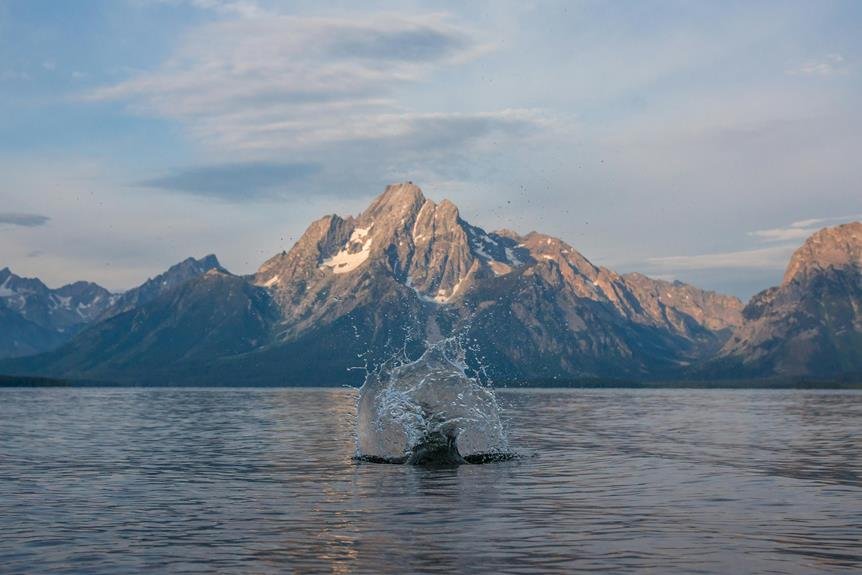
Wyoming Decentralized Unincorporated Act Daosschwartzfortune
You might find it intriguing how the Wyoming Decentralized Unincorporated Act redefines governance for DAOs, allowing unincorporated entities to flourish without the constraints of traditional corporate structures. This legislation not only promotes community-driven decision-making but also offers legal protections that can attract innovative entrepreneurs. However, the implications of this shift extend far beyond Wyoming's borders. What does this mean for the future of decentralized governance and its potential impact on the broader economic landscape?
Overview of the Act
The Wyoming Decentralized Unincorporated Act represents a significant shift in how unincorporated entities can operate within the state, fostering a more flexible framework for decentralized governance. This legislation provides a novel approach for those seeking autonomy from traditional corporate structures. By enabling a decentralized model, it allows individuals and groups to establish governance systems that better reflect their values and objectives.
Under this act, you can form unincorporated entities without the constraints imposed by conventional corporate requirements. This flexibility encourages innovation and collaboration, allowing you to create structures that align more closely with your goals. The act also addresses issues around liability and governance, ensuring that participants have clear guidelines to follow while maintaining their desired level of independence.
Moreover, Wyoming legislation has positioned the state as a leader in decentralized governance, attracting individuals and organizations keen on exploring alternative frameworks. This shift toward decentralization not only promotes freedom but also empowers you to engage in self-governance, fostering a community-driven approach to decision-making.
The Wyoming Decentralized Unincorporated Act thus opens new avenues for those who value personal freedom and wish to operate outside traditional corporate confines.
Key Features and Benefits
With its focus on flexibility and autonomy, the Wyoming Decentralized Unincorporated Act offers several key features and benefits that distinguish it from traditional corporate structures.
One of the standout features is its emphasis on community governance, allowing participants to have a direct say in decision-making processes. This democratic approach fosters a sense of ownership and encourages active involvement among members, enhancing collective responsibility.
Additionally, the Act introduces innovative token economics, which can incentivize participation and reward contributions. By utilizing tokens, you can create a dynamic ecosystem where value is directly tied to engagement and collaboration. This model not only aligns individual interests with community goals but also promotes sustainability within the decentralized framework.
Moreover, the Act provides legal clarity, ensuring that your decentralized initiatives are recognized and protected under Wyoming law. This reduces the regulatory uncertainties often associated with traditional business entities, giving you the freedom to innovate without excessive bureaucratic constraints.
Comparison to Traditional Corporations
When comparing the Wyoming Decentralized Unincorporated Act to traditional corporations, significant differences emerge in governance structure and operational flexibility. The decentralized autonomous organization (DAO) governance model offers a more fluid approach than traditional structures, promoting collective decision-making without the rigid hierarchies typically found in corporations. This decentralization allows participants to engage directly in governance, fostering innovation and adaptability.
Ownership models also differ markedly. In a DAO, ownership is often distributed among members, reflecting a shared stake in the organization's success. This contrasts with traditional corporations, where ownership is concentrated among shareholders, creating potential conflicts of interest. The alignment of interests in a DAO can lead to more collaborative environments.
Liability issues further distinguish these frameworks. Traditional corporations often shield owners from personal liability, but the decentralized nature of DAOs complicates this protection.
While you might enjoy greater flexibility in governance and ownership, you must also navigate the evolving landscape of liability and accountability.
Legal Implications for DAOs
Navigating the legal landscape for decentralized autonomous organizations (DAOs) presents unique challenges that demand careful consideration. The intersection of DAO governance and existing legal frameworks raises compliance challenges that can impact stakeholder rights significantly. It's crucial to understand how regulations apply to DAOs, as the lack of clear legal status can lead to uncertainty and potential liabilities.
Here's a breakdown of key legal implications:
| Aspect | Considerations |
|---|---|
| Governance Structure | How decisions are made and by whom |
| Regulatory Compliance | Adherence to local and federal laws |
| Liability Issues | Accountability of members and assets |
| Tax Implications | Treatment of profits and losses |
| Stakeholder Rights | Protection and participation levels |
As you explore DAO governance, consider how these factors impact your organization's operations and stakeholder engagement. Establishing clear protocols can help mitigate risks and enhance transparency. In a world striving for freedom and decentralization, understanding these legal implications is vital to ensure your DAO operates within the bounds of the law while maximizing its potential for innovation.
Future of Decentralization in Wyoming
Embracing the potential of decentralization, Wyoming stands at the forefront of a transformative movement that could redefine governance and economic structures. You're witnessing a state that actively promotes decentralized governance, creating a framework that allows individuals and organizations to operate with greater autonomy.
This shift not only empowers citizens but also encourages innovation and participation in local economies. As blockchain adoption accelerates, Wyoming's legislative initiatives pave the way for a new paradigm.
The state's commitment to integrating blockchain technology into its legal framework facilitates the establishment of decentralized autonomous organizations (DAOs) and enhances transparency in public services. You can expect to see an increase in collaborative projects that leverage smart contracts and decentralized applications, fostering a culture of trust and efficiency.
Moreover, the ongoing dialogue around regulatory clarity will likely attract tech-savvy entrepreneurs and forward-thinking investors. By prioritizing decentralized governance, Wyoming is positioning itself as a leader in the movement toward more transparent, participatory, and resilient economic systems.
The future of decentralization in Wyoming isn't just a possibility; it's an unfolding reality that offers unprecedented opportunities for freedom and innovation.
Frequently Asked Questions
How Do I Establish a DAO Under This Act?
To establish a DAO, you'll need to define its purpose, choose governance structures, and create a framework for decision-making. Ensure compliance with relevant regulations while fostering a collaborative environment for members to thrive.
What Are the Tax Implications for DAOS in Wyoming?
When you consider forming a DAO, you'll encounter tax benefits like potential deductions, yet face compliance challenges regarding reporting and regulation. Understanding these aspects is crucial for maximizing your DAO's financial freedom and sustainability.
Can Individuals Join Multiple DAOS Simultaneously?
Yes, you can join multiple DAOs simultaneously. This multi DAO participation enhances your engagement and influence in various projects. However, consider each DAO's membership dynamics to ensure your contributions align with their goals and values.
Are There Specific Reporting Requirements for Daos?
While DAOs thrive on decentralized governance, they often face varying reporting requirements based on jurisdiction. Understanding these obligations helps you navigate DAO funding effectively, ensuring compliance while maintaining the freedom to innovate and collaborate.
What Happens if a DAO Dissolves in Wyoming?
When a DAO dissolves, you must follow the specific dao dissolution processes outlined in its governance. Member rights should be respected, ensuring fair distribution of assets and addressing any outstanding obligations before finalizing the dissolution.
Conclusion
In conclusion, the Wyoming Decentralized Unincorporated Act sets a precedent for modern governance akin to the advent of the printing press, fostering innovation in decentralized structures. By providing a legal framework for DAOs, it empowers communities to make collective decisions while minimizing liability risks. As this act attracts tech entrepreneurs, it's clear that Wyoming is paving the way for a new era of economic opportunity and collaboration, potentially reshaping the future of governance beyond the traditional corporate model.




